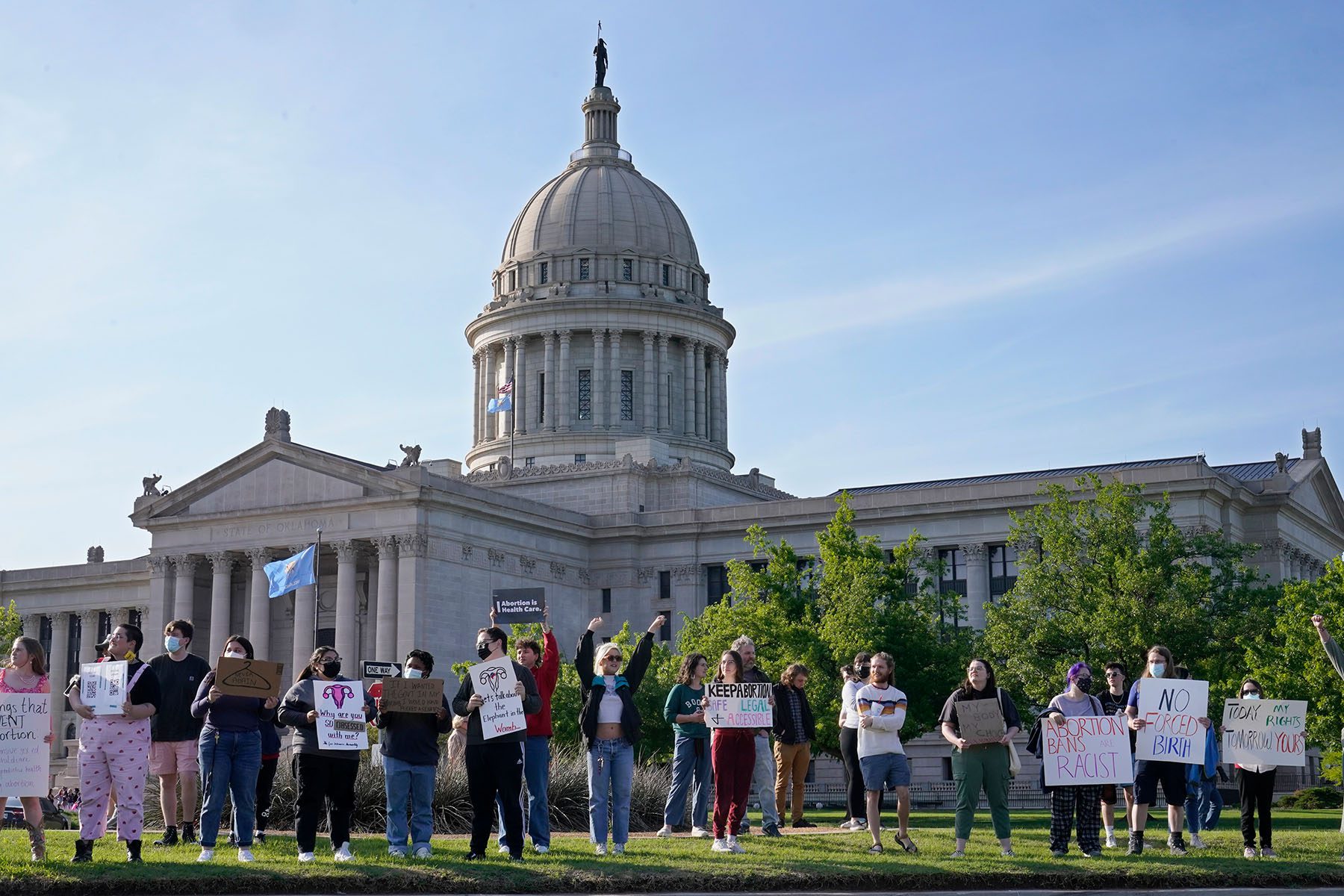Oklahoma Gov. Kevin Stitt signed a law Wednesday that would outlaw almost all abortions immediately, making it the first state in the country to end access to the procedure.
The law, known as House Bill 4327, relies on civil lawsuits for enforcement, inspired by a six-week ban in Texas. Under the new law, anyone who “aids or abets” the provision of an abortion can be sued for up to $10,000.
The ban targets abortions performed at any point in pregnancy after the egg has been fertilized. It has narrow exceptions if the abortion would save the pregnant person’s life, or if the pregnancy resulted from rape or incest that was reported to police. (Most rapes are not reported to law enforcement.) The ban takes effect right away under an emergency provision.
The new law comes only weeks before the Supreme Court is expected to issue a decision in Dobbs v. Jackson Women’s Health Organization, in which it is expected to overturn Roe v. Wade, the 1973 case that guaranteed the right to an abortion. Now, even while Roe remains the law of the land, abortion rights are effectively already gone in Oklahoma — a state where lawmakers have served as a vanguard of abortion restrictions.
Only three and a half weeks ago, the governor signed another Texas-inspired law, one that banned abortions after six weeks of pregnancy and also took effect immediately. In April, he signed a criminal abortion ban that is set to take effect in August. Oklahoma already has a trigger law on the books that would ban abortion shortly after Roe is overturned.
-
Dashboard:
“It is hard for patients to understand that it wasn’t enough to restrict access to about six weeks, and that now the yare forced to leae the state if they want to have an abortion,” said Andrea Gallegos, the administrator for Tulsa Women’s Clinic. “And it’s hard for us as providers to explain this when Roe is supposedly still the law of the land.”
The Center for Reproductive Rights, which represents Tulsa Women’s Clinic, has said it intends to challenge the new law in Oklahoma state court. But it’s unclear when the court will respond. Already, it has declined to block Oklahoma’s six-week ban, which has decimated access.
Already, clinics in the state have halted abortions altogether. Staff from both Tulsa Women’s Clinic and Trust Women, an independent abortion provider with clinics in Oklahoma City and Wichita, Kansas, told The 19th they did not schedule any abortions this past week — fearing that the governor could sign the ban into law any day. Planned Parenthood, which operates two Oklahoma clinics, has stopped scheduling abortions in the state as well, according to its website.
“The hope is that we will get some relief from higher courts and we can continue providing care to Oklahomans within the already restrictive requirements of [the six-week ban],” Gallegos said. “Right now it feels like abortion clinics in Oklahoma have targets on their back.”
The closest states people can access care are now Kansas, Arkansas, New Mexico and Colorado. Since April, the prospect of the looming abortion ban has spurred clinics in Oklahoma to encourage patients to consider clinics in those other states.
Trust Women has been steering patients toward its Kansas clinic and increasing staffing there. Staffers are also preparing to use their Oklahoma clinic to provide ultrasound and other preparatory care. From there, the plan is tothen send patients to Wichita, where they can pick up the pills for medication abortions, which are highly effective within the first trimester of pregnancy.
Still, clinicians worry that some patients will not be able to travel the distance now required to get an abortion if you live in Oklahoma.
“Telling people now, ‘Can you get to Kansas City? Can you get to Denver?’ That is going to be overwhelming for many people we serve,” said Emily Wales, interim president and CEO for Planned Parenthood Great Plains, which oversees clinics in Kansas, Oklahoma, Missouri and Arkansas. “This care is time sensitive and critical for a reason. The impact will be real and it will be felt immediately.”







